How Jiu-Jitsu Practitioners Are Submitting the Stigma of Mental Illness
How Jiu-Jitsu Practitioners Are Submitting the Stigma of Mental Illness
The inability of people to reach out and seek help when suffering from mental illness can lead to tragic results.
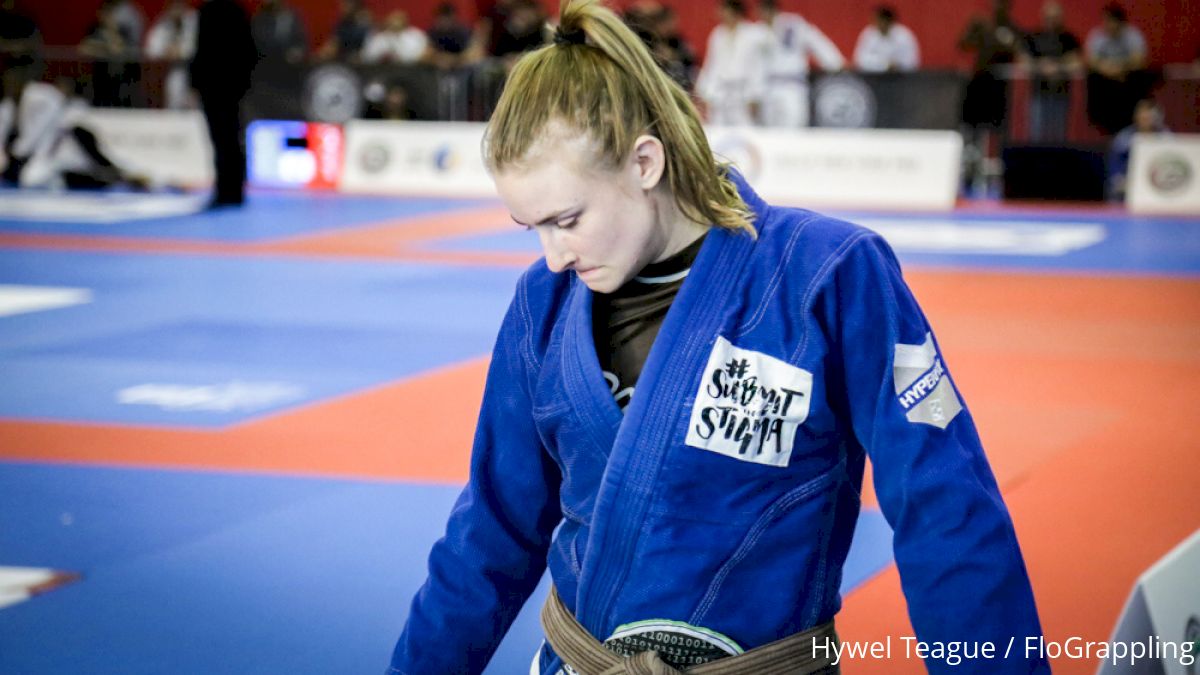
The inability of people to reach out and seek help when suffering from mental illness can lead to tragic results, as a jiu-jitsu brown belt from California knows all too well. Following the loss of her father to suicide, Erin Herle created a campaign designed to submit the stigma of mental illness. With growing support from some of the biggest names in the sport, the grass roots movement is helping end the taboo of talking about mental illness and associated problems.
His daughter Erin Herle is a jiu-jitsu brown belt representing Alliance. Erin started training jiu-jitsu in 2009 after being diagnosed with ADHD and suffering from anxiety disorder and depression. Training jiu-jitsu is known to have therapeutic benefits, and Erin's time on the mats helped her face her problems head on.
"My dad's suicide was the perfect time for me to crumble, but instead I managed to find a way to help others in the process of my own healing," says Erin.
The Submit The Stigma movement began, as all great things do, in humble fashion. A simple hand-drawn sign bearing the hashtag #submitthestigma, held by Erin on the top of the podium at the 2015 No-Gi Worlds, thrust the phrase into the jiu-jitsu community's collective consciousness.
Herle wasn't alone in holding up the sign. Tammi Musumeci, who wrote with great feeling about her own challenges, was another gold medalist support. Many others have since lent their support to the movement and shared their own stories.
A fund-raising campaign in Herle's father's memory raised more than $6700 for the National Alliance on Mental Illness (NAMI), with the majority of donations stemming from the jiu-jitsu community. The outpour of generosity from fellow grapplers inspired Herle to take things further.
"To start an awareness campaign is a relatively difficult task unless you give it a proper platform," says Herle. "Because Submit The Stigma is catered to those who train jiu-jitsu I wanted to pair the two together in their highest form. I hoped I could have some high-level athletes teach some of their moves in an environment that would also teach about mental health."
Submit the Stigma seminars have taken place all over the United States, with Erin organizing events that feature ensemble casts of guest teachers.
One notable example was in 2016 shortly after the IBJJF Pan Jiu-Jitsu Championships when Romulo Barral, Caio Terra, Clark Gracie, Gianni Grippo, Abraham Marte and Kristina Barlaan gathered together at Studio 540 in Solana Beach in San Diego for aseminar. The mats were packed with around 150 participants and the overall vibe was one of positivity and support.
Proceeds of the seminar went to the National Alliance on Mental Illness, an organization that provides support for people living with and education for those with friends or loved ones affected by mental illness.
Go to the Submit the Stigma website for more information and to get involved.
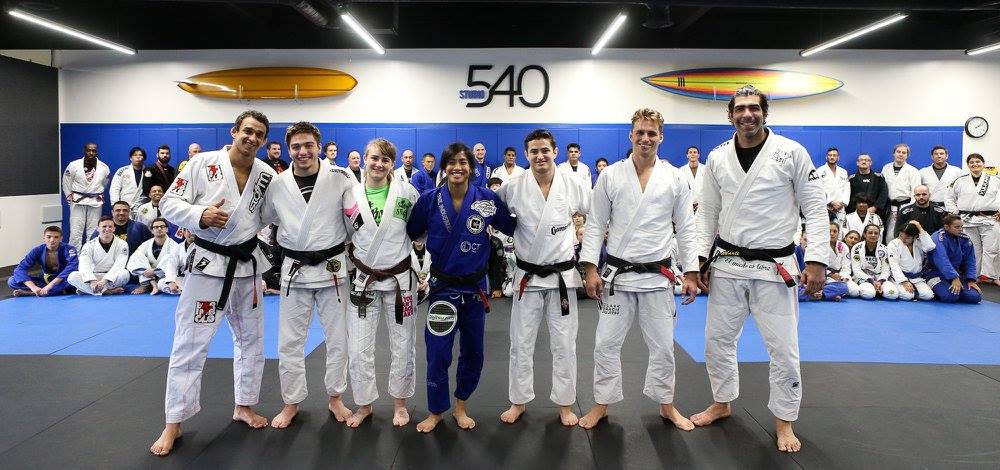
How The Submit The Stigma Movement Was Created
Approximately one in five people in the U.S. -- that's around 43.8 million people -- will suffer from some kind of mental illness. Robin Herle was one of them. He took his own life in 2015 after living with years of undiagnosed and untreated mental illness, leaving behind a wife and two daughters.His daughter Erin Herle is a jiu-jitsu brown belt representing Alliance. Erin started training jiu-jitsu in 2009 after being diagnosed with ADHD and suffering from anxiety disorder and depression. Training jiu-jitsu is known to have therapeutic benefits, and Erin's time on the mats helped her face her problems head on.
"My dad's suicide was the perfect time for me to crumble, but instead I managed to find a way to help others in the process of my own healing," says Erin.
The Submit The Stigma movement began, as all great things do, in humble fashion. A simple hand-drawn sign bearing the hashtag #submitthestigma, held by Erin on the top of the podium at the 2015 No-Gi Worlds, thrust the phrase into the jiu-jitsu community's collective consciousness.
Herle wasn't alone in holding up the sign. Tammi Musumeci, who wrote with great feeling about her own challenges, was another gold medalist support. Many others have since lent their support to the movement and shared their own stories.
A fund-raising campaign in Herle's father's memory raised more than $6700 for the National Alliance on Mental Illness (NAMI), with the majority of donations stemming from the jiu-jitsu community. The outpour of generosity from fellow grapplers inspired Herle to take things further.
Submit The Stigma Charity Seminars
One of the things people love most about jiu-jitsu is the opportunity it gives you to develop meaningful, lasting friendships with others in the community. Also, there is the ability to interact with some of the sport's most famous champions and elite practitioners. Erin is an active competitor and reached out to her connections for help."To start an awareness campaign is a relatively difficult task unless you give it a proper platform," says Herle. "Because Submit The Stigma is catered to those who train jiu-jitsu I wanted to pair the two together in their highest form. I hoped I could have some high-level athletes teach some of their moves in an environment that would also teach about mental health."
Submit the Stigma seminars have taken place all over the United States, with Erin organizing events that feature ensemble casts of guest teachers.
One notable example was in 2016 shortly after the IBJJF Pan Jiu-Jitsu Championships when Romulo Barral, Caio Terra, Clark Gracie, Gianni Grippo, Abraham Marte and Kristina Barlaan gathered together at Studio 540 in Solana Beach in San Diego for aseminar. The mats were packed with around 150 participants and the overall vibe was one of positivity and support.
Proceeds of the seminar went to the National Alliance on Mental Illness, an organization that provides support for people living with and education for those with friends or loved ones affected by mental illness.
What is most surprising is how many people feel that this campaign was the opportunity to talk about their struggles -- that my campaign and my story helped people feel safe in telling their own stories. Some had never even told their closest friends what they've gone through, but it's all positive because all of them have said that training jiu-jitsu has helped them work toward positive mental well-being.
Go to the Submit the Stigma website for more information and to get involved.

Related Content
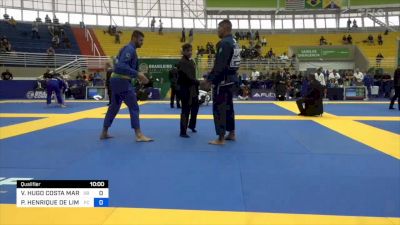 Supercut: Victor Hugo Wins '23 Brasileiros Double Gold With Signature Submission Offense
Supercut: Victor Hugo Wins '23 Brasileiros Double Gold With Signature Submission OffenseApr 18, 2024
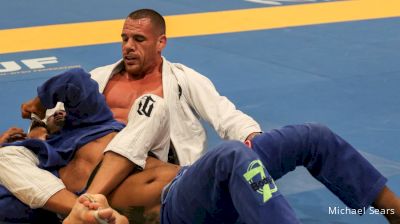 Every Non-Brazilian Jiu-Jitsu Competitor Who Has Won IBJJF Brasileiro
Every Non-Brazilian Jiu-Jitsu Competitor Who Has Won IBJJF BrasileiroApr 18, 2024
 WNO 23 Undercard Announced, 4 Prelim Matches Complete The Card
WNO 23 Undercard Announced, 4 Prelim Matches Complete The CardApr 18, 2024
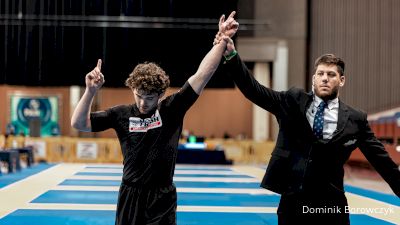 Dante Leon Officially Invited to ADCC 2024 At -77kg
Dante Leon Officially Invited to ADCC 2024 At -77kgApr 17, 2024
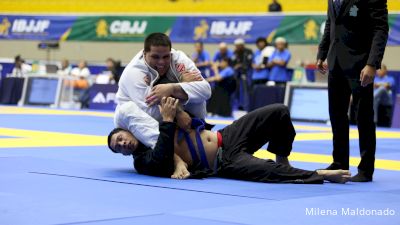 How To Watch IBJJF Brasileiro 2024
How To Watch IBJJF Brasileiro 2024Apr 17, 2024
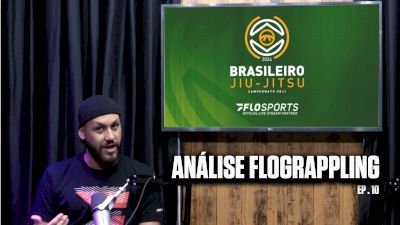 Destaques inscritos no Brasileiro de Jiu-Jitsu 2024 | Análise FloGrappling Ep.10
Destaques inscritos no Brasileiro de Jiu-Jitsu 2024 | Análise FloGrappling Ep.10Apr 16, 2024
 William Tackett Joins To Recap His Trials Run | ADCC Update Show (Ep 10)
William Tackett Joins To Recap His Trials Run | ADCC Update Show (Ep 10)Apr 15, 2024
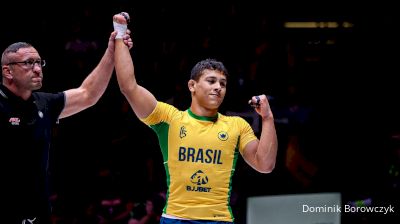 Mica Galvao Officially Invited to ADCC At -77kg
Mica Galvao Officially Invited to ADCC At -77kgApr 15, 2024
 Every Athlete Invited To The 2024 ADCC World Championships
Every Athlete Invited To The 2024 ADCC World ChampionshipsApr 15, 2024